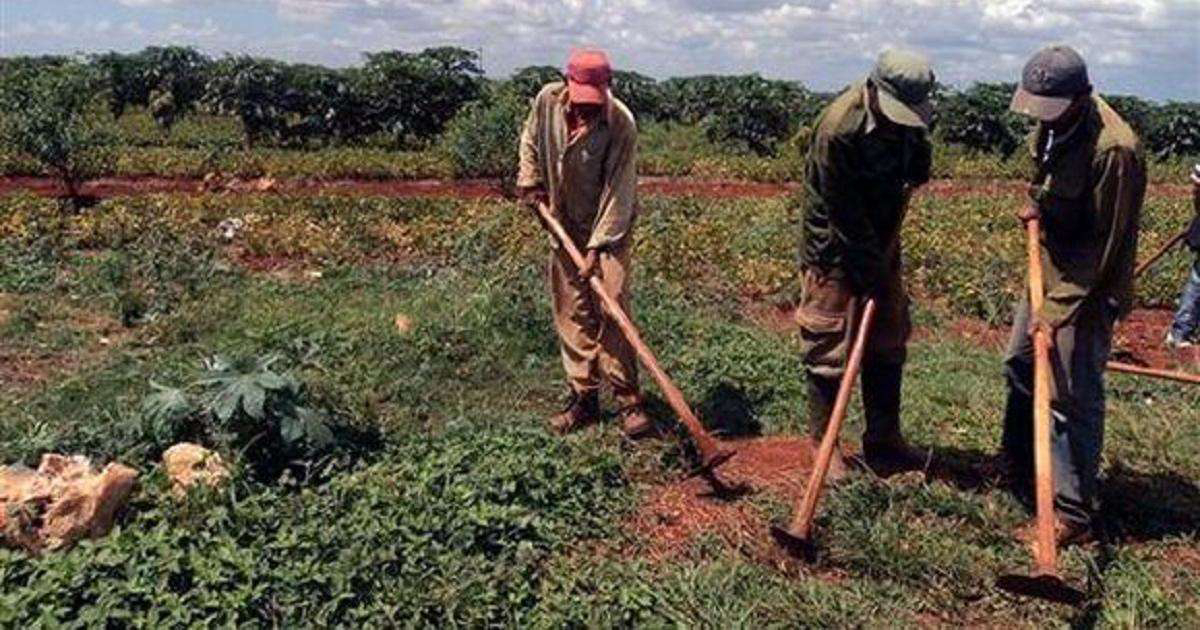The Cuban government owes nearly 200 million pesos to the country's farmers, a situation that has sparked concern and criticism within the agricultural sector. This Tuesday, the Agrofood Commission reviewed the report from the Ministry of Agriculture (Minag) and the economic results as of the end of June 2024. Alexis Rodríguez Pérez, General Director of Agropecuarian Economy and Development, highlighted severe deficiencies in the sector’s management.
Non-payment to producers exacerbates the situation. The provinces of Artemisa and Mayabeque are the most affected, with debts amounting to 167,694,630 pesos and 15,166,378 pesos, respectively. The main cause of this debt is the inability of Acopio de La Habana to meet its payment obligations. Although credits have been approved to alleviate these debts, the situation remains critical.
The Banco Popular de Ahorro approved a commercial credit of 400 million pesos and a revolving credit of 100 million pesos, but these measures seem insufficient given the extent of the problem. Rodríguez Pérez noted that agricultural production, by the end of the semester, continues to show a worrying trend of non-compliance, especially in basic products such as eggs, meat, and milk.
The regime claims that the lack of productivity is due to factors such as fuel shortages, and the absence of chemicals and fertilizers. Only four of the ten fundamental production indicators were met. The fortunate ones were vegetables, root crops, corn, and consumption rice.
Livestock production also shows a bleak outlook. Beef and horse meat have been affected by poor organizational work between companies and producers, insufficient transportation of animals due to fuel shortages, and poor quality of animal feed. Out of a plan for 20,400 tons of meat, only 15,200 tons were achieved. Pork production also showed a significant decline, with only 3,800 tons out of a planned 11,300 tons. This could continue driving up the price of the preferred meat in Cuba.
Egg production was also poor in the semester, achieving only 231,900,000 units, 94,070,000 units short of the planned figure. Other products such as beans, tobacco, milk, coffee, cocoa, and honey also showed decreases compared to the plan.
Agricultural companies face losses totaling 1,199,946,100 pesos, affecting 74 companies within the system, including major ones like Avícola, Tabacuba, Agroforestal, Ganadero, and Labiofam.
The government’s management of the agricultural sector is among the worst in Cuba’s history. The country requires a thorough review and effective measures to resolve the debts and improve production, thereby ensuring the basic sustenance of the Cuban population. The state is unable to solve the food crisis.
Understanding Cuba's Agricultural Crisis
Here are some frequently asked questions and answers to help understand the current agricultural crisis in Cuba.
Why does the Cuban government owe money to farmers?
The debt is primarily due to the inability of Acopio de La Habana to fulfill its payment obligations to farmers.
Which provinces are most affected by the debt?
The provinces of Artemisa and Mayabeque are the most affected, with debts of 167,694,630 pesos and 15,166,378 pesos, respectively.
What steps has the Cuban government taken to address the debt?
The Banco Popular de Ahorro has approved a commercial credit of 400 million pesos and a revolving credit of 100 million pesos, but these measures appear insufficient.
What factors are contributing to the lack of productivity in Cuban agriculture?
The regime cites factors such as fuel shortages and the lack of chemicals and fertilizers as the main reasons for the low productivity.
